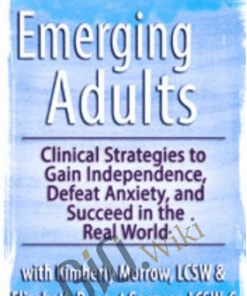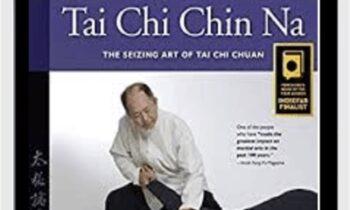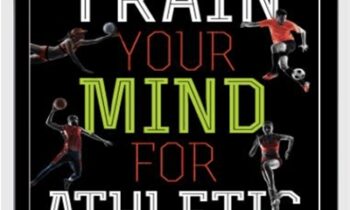$149.00 Original price was: $149.00.$44.00Current price is: $44.00.
Digital Download: You will receive a download link via your order email
Save up to 85% compared to Salepage prices. In addition, earn additional points. Save more on your next order.
Please contact email: wixzip.cs@gmail.com if you have any questions about this course.
 Purchase this course you will earn 44 Points worth of $4.40
Purchase this course you will earn 44 Points worth of $4.40Elevate your skills with the Jennifer Lefebre & Janet A. Courtney – Advanced Trauma Treatment for Children and Adolescents A Certified Child and Adolescent Trauma Professional Training Course course, available for just $149.00 Original price was: $149.00.$44.00Current price is: $44.00. on Utralist.com! Browse our curated selection of over 60,000 downloadable digital courses across diverse Health and Medical. Benefit from expert-led, self-paced instruction and save over 80%. Start learning smarter today!
 Jennifer Lefebre & Janet A. Courtney – Advanced Trauma Treatment for Children and Adolescents A Certified Child and Adolescent Trauma Professional Training Course
Jennifer Lefebre & Janet A. Courtney – Advanced Trauma Treatment for Children and Adolescents A Certified Child and Adolescent Trauma Professional Training Course
When trauma stays trapped in a child’s body they feel overwhelmed.
They don’t sleep. They’re anxious, depressed, failing in school, angry and socially isolated…
…They are completely vulnerable.
And they can’t describe what’s going on inside them. They simply don’t have the words and language to TELL you.
Traditional therapies can’t help them. To end their suffering, you have to turn to their natural language: Play.
Through play, children expose their trauma, formulate their narrative and begin to heal.
And now, with this powerful online training, you can learn how to integrate play therapy with the core components of the leading evidence-based trauma treatments like EMDR, Trauma Focused CBT, and more.
Packed full of tools, strategies and techniques you can effortlessly blend into your clinical practice, this unique certification course will show you step-by-step how you can help treat unspeakable heartache.
Don’t wait, register today to unlock a powerful approach that can help your clients achieve lasting results and offer them hope through the power of play.
PS – Complete this course and you will become a Certified Child and Adolescent Trauma Professional. Purchase today and you’ll also get a BONUS session from Jennifer Lefebre, Psy.D., RPT-S, where she’ll show you how to adapt your treatment plans to a telehealth setting… So your sessions don’t have to skip a beat while we’re practicing social distancing.
Learn more below…
What Will I Learn?
This comprehensive certification online course provides the foundation of skills you need to successfully integrate play therapy with the leading evidence-based trauma treatment models.You’ll walk away confident in your ability to implement play-based trauma interventions in a fun, engaging, safe, and appropriate manner. You’ll discover…
- How to provide children engaging, developmentally appropriate and empirically validated treatment
- Essential components of trauma treatment that flexibly combine with sensory, non-verbal and embodied play
- A clinical framework that incorporates trauma theory, neuroscientific research and play therapy principles
- Strategies to improve self-regulation, attachments and relational engagement
- Tools to enhance the capacity for healthy play among the youngest of trauma survivors
- 20+ clinical and ethical best practice guidelines
- 10 different types of touch that can occur in a therapy session
- 4 ways to evaluate for a child’s psychosocial experiences related to touch
- 5 therapeutic interventions to handle in-the-moment ethical dilemmas in a play therapy session
- …and more

Make it easier for the children in your practice to process trauma with step-by-step guidance from Dr. Jenn Lefebre.You’ll begin by exploring the neuroscience of childhood trauma followed by a deep dive into assessment tools and strategies for complex trauma, post-traumatic stress disorder, reactive attachment disorder and more.You’ll end module one with an integrated, clinical framework that incorporates play therapy into proven evidence-based trauma treatment models including:
- Eye Movement Desensitization and Reprocessing (EMDR)
- Trauma Focused Cognitive Behavioral Therapy (TF-CBT)
- Attachment, Regulation and Competency (ARC)
- Trauma Adaptive Recovery Group Education Therapy (TARGET)
- Child Parent Psychotherapy (CPP)
Outline | Module 1
Neuroscience of Childhood Trauma Theory
- Fight-or-Flight (parasympathetic/sympathetic nervous system)
- Attachment Theory
Assessment
- Complex Trauma
- Post-traumatic Stress Disorder
- Reactive Attachment Disorder
- Developmental Trauma Disorder
- A new conceptualization and integrated clinical framework
Essential Components for Trauma-Informed Treatments
- Establishing safety and a sense of competence/worth
- Appropriate attachments & relational engagement
- Self-regulation (body & emotions)
- Self-reflection & Introspection
- Integration of traumatic experiences (acknowledgment & processing of the trauma)
- Future safety ~ transitioning beyond the Trauma
Body Based Treatment – Emotional and Behavioral Regulation
- Verbal vs nonverbal responses – how to recognize trauma without verbal report
- Bottom-up versus top-down processing – trauma starts in the body
- Developmental needs of traumatized children
- Embodied play & sensory integration – emotional and behavioral regulation
Play Therapy Principles
- Therapist establishes a friendly relationship
- Accepts the child as he is
- Creates a permissive relationship; child has freedom of expression
- Validates (acknowledge and reflect) child’s feelings
- Responsibility for decisions and change is left mostly to the child
- Child directs the therapeutic process; therapist follows
- Therapeutic interaction is not rushed
- Limits are set only when necessary for child’s outcomes
Advancing Trauma Treatment with Play Therapy
- Non-verbal techniques
- Sensory-based techniques
- Culturally and developmentally appropriate techniques
Play Therapy Strategies and Techniques
- Integration of traumatic experiences to acknowledge and process the trauma: Sandtrays, drawings, & play
- Target shame, self-doubt, and selfcompassion: Sandtray Safeplace & All About Me
- Build an understanding of the brainbody relationship: Flip your lid and Charades
- Target indiscriminate attachments and interpersonal reactivity: Invisible String & Family Sandtray
- Improve emotional and bodily regulation: Stressballs, Be Spaghetti, Feelings Map, Trashballs, Yoga, and Weather Massage

The Ethics of Touch with Janet Courtney, PhD, LCSW
What if that simple caring hug you gave a child in a therapy session somehow triggered a report to your licensing board?
Do you know what to do when a child hits you during a session?
What about when a child tries to touch you inappropriately?
In Module 2, Dr. Janet Courtney explores these ethical considerations of touch, including current research, cultural concerns, and the importance of touch to human development.
You’ll see in-the-moment interventions and case examples that deal with issues related to attachment, autism, ADHD, Sensory processing disorder, and physical and sexual abuse.
Outline | Module 2
The Ethics of Touch in Context
- Clinical concerns of touch in child psychotherapy and play therapy
- No touch policies-more harm than good?
- Types of touch: greeting, accidental, task-oriented, attentional, and more
Assessment for Psychosocial Experiences of Touch
- 4 Child Drawing Assessments
- Rating scale questionnaires
- Parent’s perceptions of child’s touch experiences
- Teacher Touch Observation Rating Scale for child
20+ Top Ethical Touch Best Practice Guidelines
- Practitioner Touch Awareness Questionnaire
- Informed Consent-for therapy approaches that use touch
- Informed Consent-Mandated Reporter of all forms of abuse
- Unethical Forms of Touch
- And many more…
Interventions and Case Examples: Ethical dilemmas of Touch- Responses, Interventions and Boundary Setting
- Risk/benefit decision making
- Child hits/slaps therapist
- Inappropriate touching of therapist
- Child asks to be touched inappropriately
- Child asks for appropriate touch
- Specific populations
- Infants-behavioral cue indications
- Teenagers
- Attachment Disorders
- Autism/Sensory Processing Disorders
- Sexually traumatized children
- 10+ Recommendations for working with abused children
- Engaging parents in problem touch occurrences
Early in my career, a young girl who had been completely non-verbal following a traumatic event came into my office. I wasn’t sure what to do, so we silently played with pipe cleaners.
The next day her mother called to tell me her daughter smiled after our session. It was her first smile in 6 months.
Once I saw how powerful play, connection and touch can be in treating trauma, I knew I needed to learn more. I became a Registered Play Therapist-Supervisor and received specialized training for working with kids and complex trauma.
After years of working with kids and trauma, what I’ve discovered is simple:
By incorporating play into our trauma treatment models, we give words to the voiceless and power to the powerless.
Join me in this comprehensive training and let me show you how you can radically change the way you practice and dramatically improve your treatment outcomes with simple, but powerful, evidence-based interventions.
See you in the course,
Jennifer Lefebre, PsyD, RPT-S
Complete the training and get the tools and strategies you need to…

Adapt the program. Whether you have 20 minutes or an hour, work in a school setting, have your own therapy room, or practice in-home therapy, you’ll learn tips and tricks to make play therapy work for you.Integrate a holistic approach. With play therapy, you can get to the heart of the problem and improve behaviors such as aggression, defiance, emotional instability, and more, without the use of medication.
Improve compliance. Play therapy homework is fun. And when your clients and their families integrate the easy and engaging activities you’ll learn in this course at home, you’ll meet your clinical goals faster.
Incorporate families. Unlike other modalities, play therapy is easy to do with families. You’ll learn simple ways to adapt the tools and strategies you use one-on-one with your client to also include families — so you can help build stronger, healthier relationships.
About the course faculty:

Jennifer Lefebre, PsyD, RPT-S, is a clinical supervisor and EMDR consult facilitator at the Trauma Center. She completed her doctoral degree in Clinical Psychology from the University of Hartford in 2006.
She is a Registered Play Therapist – Supervisor, and has received specialized training in Attachment, Regulation and Competency (ARC), Sensory Motor Arousal Regulation Therapy (SMART), Trauma Sensitive Yoga (TC-TSY), Trauma-focused Cognitive Behavioral Therapy (TF-CBT), Theraplay, and Parent Child Interaction Therapy (PCIT-A). She is working toward becoming an EMDRIA-approved consultant and is an EMDR (Level II) clinician. Additionally, she is an Infant and Early Childhood Mental Health Consultant.
Dr. Lefebre’s clinical and research interests center on the assessment and treatment of children, adolescents, adults and families whose lives have been impacted by complex trauma. She has experience working with young children (0-5), adult survivors of severe childhood abuse and neglect, and combat veterans with PTSD. She has worked in residential treatment, psychiatric inpatient and community mental health settings, and schools, and has taught at both the undergraduate and graduate level. She has provided trainings around the country integrating play therapy and evidence-based trauma practices.

Janet A. Courtney, PhD, LCSW, is founder of FirstPlay Therapy® and an adjunct professor at Barry University School of Social Work, Miami Shores, FL. She is a Registered Play Therapy-Supervisor, TEDx speaker, chair of the Ethics and Practice committee through the Association for Play Therapy, and past president of the Florida Association for Play Therapy.
Dr. Courtney is author and co-editor of the groundbreaking 2017 book, Touch in Child Counseling and Play Therapy: An Ethical and Clinical Guide. Her research into touch is published in the International Journal of Play Therapy, and the American Journal of Art Therapy. She is also published in the Journal of Therapeutic Horticulture and is a contributing author for the chapter, “Touching Autism through Developmental Play Therapy” in the book Play-based Interventions for Children and Adolescents with Autism Spectrum Disorders.
She offers a certification in FirstPlay Therapy® (including FirstPlay® Infant Massage Storytelling). She has been invited to speak nationally and internationally including the Cayman Islands, England, Ireland, Morocco, Russia and the Ukraine. She specializes in infant play therapy/infant mental health, attachment, and trauma related issues.
Dr. Courtney’s new form of Kinesthetic Storytelling® can be found in her children’s book, The Magic Rainbow. Visit her website at www.FirstPlayTherapy.com
Sale Page: https://catalog.pesi.com/sales/bh_c_001261evg_childtrauma_organic-118012
Archive: https://archive.fo/zwnfv
Delivery Method
Be the first to review “Jennifer Lefebre & Janet A. Courtney – Advanced Trauma Treatment for Children and Adolescents A Certified Child and Adolescent Trauma Professional Training Course” Cancel reply
Cultivate continuous growth with the Jennifer Lefebre & Janet A. Courtney – Advanced Trauma Treatment for Children and Adolescents A Certified Child and Adolescent Trauma Professional Training Course course at Utralist.com! Unlock lifetime access to premium digital content, meticulously designed for both career advancement and personal enrichment.
- Lifetime Access: Enjoy limitless access to your purchased courses.
- Exceptional Value: Benefit from savings up to 80% on high-quality courses.
- Secure Transactions: Your payments are always safe and protected.
- Practical Application: Gain real-world skills applicable to your goals.
- Instant Accessibility: Begin your learning journey immediately after buying.
- Device Compatible: Access your courses seamlessly on any device.
Transform your potential with Utralist.com!
Related products
Health and Medical
= 28 Points
Health and Medical
= 34 Points
Health and Medical
= 72 Points
Health and Medical
= 43 Points
Health and Medical
= 33 Points
Health and Medical
= 53 Points
Health and Medical
EXOS Presents: Advanced Strength and Power Featuring Dan Baker
= 53 Points
Health and Medical
Train Your Mind for Athletic Success – Mental Preparation to Achieve Your Sports Goals – Jim Taylor
= 18 Points




 Jennifer Lefebre & Janet A. Courtney – Advanced Trauma Treatment for Children and Adolescents A Certified Child and Adolescent Trauma Professional Training Course
Jennifer Lefebre & Janet A. Courtney – Advanced Trauma Treatment for Children and Adolescents A Certified Child and Adolescent Trauma Professional Training Course







Reviews
There are no reviews yet.